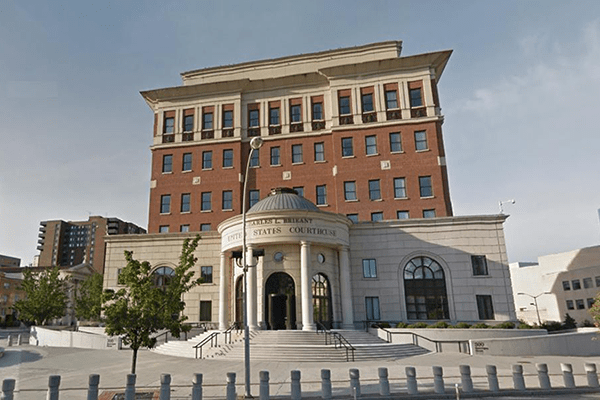|
RCBJ-Audible (Listen For Free)
|
UPDATED 12/7/2024
RFA Board Dissolution and Bankruptcy Filing Follow Discrimination Claim By Its Former Executive Director
By Tina Traster
The Rockland Farm Alliance, which has farmed the Cropsey Farm on Little Tor Road in New City since 2007, on Wednesday filed bankruptcy due to yearlong internal strife that led to its dissolution on Nov. 30.
The organization has been upended by allegations of harassment and discrimination by Sue Ferreri, its Executive Director, against the organization’s board members. Ferreri filed a claim with the New York State Department of Human Rights about nine months ago.
Ferreri’s attorney Sam Smith said the state has made a “notice of finding of probable cause,” of discrimination, which means the case will proceed to a hearing before an administrative judge. Once a complaint has received a probable cause determination, the parties may only enter into a settlement with the consent of the division.
“This could go either way,” said Smith, explaining the case will either go to trial or be settled.
After months of internal dispute between the executive director and the board, the RFA filed a petition for voluntary bankruptcy in the Bankruptcy Court for the Southern District of New York, citing insolvency and being “unable to pay its debts as they mature,” according to a statement by Board Secretary Mary Lukens.
The petition, filed Wednesday, cites the “best interests of creditors” as one of the reasons for filing.
According to court records, the RFA has assets valued at about $75,000 and liabilities in excess of $112,000. Its largest creditor is the Small Business Association, which is owed just over $64,000 stemming from a pandemic era EIDL loan. Its next largest creditor is the Orangeburg-based law firm of Greenwald Doherty in the amount of $16,500, a debt stemming from the RFA’s defense of the discrimination claim filed by Sue Ferreri, the former Executive Director earlier this year.
Ferreri is listed as a “non-priority creditor” whose claim is based on damages from a lawsuit. This means that Ferreri is neither a secured creditor nor is there a specific damage amount established, should she ultimately prevail in her claim.
According to the bankruptcy petition, gross revenues have increased by 44% over nearly three years. The farm alliance recorded $369,232 in 2022, $473,122 in 2023, and $530,095 through November this year. The organization has only $15,560 in its bank accounts.
Among its assets, in addition to farm and office equipment, the RFA also listed 15 chickens, three pigs, five goats, six ducks, and two turkeys. Ferreri previously told RCBJ that the group left behind 30 chickens when the county seized the property.
Rockland County on Wednesday announced the dissolution of the Rockland Farm Alliance (RFA), one of the only remaining farming operations in the county, leaving the future of the land and the animals on uncertain terms for now.
“RFA did not abandon or leave behind any animals – in fact we had homes lined up for the pigs, goats, ducks, turkeys, and chickens,” according to the Board. “The former Executive Director appealed to the board to keep the animals at the farm and the county demanded we don’t move them. The county said they would send an official notice they were caring for the animals, we have yet to receive notice beyond an email stating they would provide written assurance.”
In response, a spokesperson for the county said, “When the RFA Board notified the County of their intent to dissolve on November 30, 2024, and their termination of all staff, the RFA Board stated that they intended to rehome the animals based on the assumption that no one would be able to care for them, but did not present a specific option such as an animal sanctuary. Fearing for the wellbeing of the animals, the County offered to continue to care for them ourselves, and the RFA Board accepted that offer.”
The County said it is seeking a new operator for the Cropsey Community Farm on South Little Tor Road in New City. It is planning on putting out a Request For Proposals for a non-profit operator. In the meantime, animals that depended on the continuity of care from some 20 staff members will be under the care of the county’s parks division. Additionally, some crops have already been planted for next year’s harvest.
The RFA, a non-profit founded in 2007, is dissolving “per their board due to irreconcilable differences with the staff,” Ferreri has said in a prepared statement.
John and Alexandra McDowell, along with a passionate group of community members, started operations on the former Cropsey Farm in New City in 2007. The RFA was born out of a shared vision to support local farming in Rockland County. The McDowells, who had already established the county’s first Community Supported Agriculture (CSA) project at Camp Hill Farm, recognized the critical need for infrastructure and support for the area’s remaining farms
The 25-acre farm, once operated by the Cropsey family, is jointly owned by Rockland County (61 percent) and the Town of Clarkstown (39 percent). The nonprofit Alliance leases 25 acres but farms roughly five acres.
Board members said the organization was facing financial problems.
“The closure of Rockland Farm Alliance was solely due to financial difficulties and our inability to continue fulfilling our mission,” said the Rockland Farm Alliance Board in a statement. “We are all deeply saddened by the end of operations. At RFA, we invested countless hours and personal resources into running the nonprofit and launching Cropsey Community Farm, all with the goal of preserving farmland for the people of Rockland County to enjoy.”
The farm, which employed 20 people and a team of volunteers, has relied on multiple revenue streams including a farm store, $60,000 from Rockland County annually (which has increased 10 percent each year), state grants, Community Block Grants, and corporate and individual donations. Two school districts, Clarkstown and North Rockland, pay $20 per student for second graders to visit the farm eight times over the school year and participate in educational programs. The farm also supports itself with a fall festival and winter holiday market, as well as an annual fundraising dinner.
Last year, Ferreri told RCBJ that the farm was struggling financially. Ferreri was on the Board of Directors for several years before becoming Executive Director.
But in a statement today, she wrote: “We would have been able to cover costs and ended the year with a surplus. Under my leadership, income to the farm was up over 44 percent. At no point was there a financial conversation about dissolving or bankruptcy.”
Income was not the only consideration for the RFA board.
“The increase in revenue was accompanied by an increase in operating expenses, legal expenses, loan debt, and a number of unpaid bills making the organization insolvent,” said a board member. “Unfortunately, insolvency, oftentimes leads to bankruptcy. It’s a regrettable and unfortunate situation. The RFA is committed to resolving our debts and working cooperatively with the County and Town of Clarkstown to ensure a successful transition.”
Ferreri said she had no comment about the discrimination claim filed, other than “I hope justice is served.”












